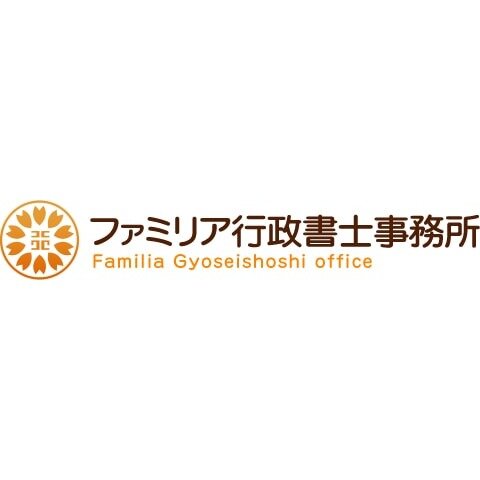Best Citizenship Lawyers in Japan
Share your needs with us, get contacted by law firms.
Free. Takes 2 min.
Or refine your search by selecting a city:
List of the best lawyers in Japan
About Citizenship Law in Japan
Citizenship in Japan is governed by the Nationality Act, which outlines the requirements and procedures for acquiring Japanese nationality. Unlike some countries, Japan does not automatically grant citizenship based on birth within its territory unless the child's parents meet specific criteria. Japanese nationality can be acquired through birth, acknowledgment, or naturalization. Dual citizenship is generally not recognized in Japan, requiring individuals to choose between Japanese nationality and another nationality by a certain age.
Why You May Need a Lawyer
There are several situations where individuals may seek legal assistance concerning Japanese citizenship:
- Naturalization Process: Applying for naturalization involves extensive documentation and strict eligibility criteria, which can be challenging to navigate without professional guidance.
- Dual Citizenship Issues: Japan's policies on dual citizenship can be complex, requiring legal interpretation and advice to ensure compliance.
- Residency Requirements: Understanding the residency and legal status requirements that affect eligibility for citizenship may necessitate legal advice.
- Legal Obstacles: Individuals facing legal challenges in their applications or those with unique circumstances may need a lawyer to represent their case.
- Document Preparation: Ensuring all legal documents are correctly prepared and submitted can require professional legal assistance.
Local Laws Overview
The key aspects of local laws that are particularly relevant to citizenship in Japan include:
- Eligibility for Naturalization: Applicants must generally have five continuous years of residence in Japan, be at least 20 years old, and demonstrate good behavior.
- Knowledge of Japanese Culture and Language: Proficiency in the Japanese language and understanding of local customs can be essential for successful naturalization.
- Renunciation of Previous Nationality: Japan generally requires naturalized citizens to renounce their previous citizenship.
- Statelessness Prevention: Japan has specific legal mechanisms to prevent and address statelessness, focusing on children born in Japan who may otherwise be stateless.
Frequently Asked Questions
1. Can I have dual citizenship in Japan?
Generally, Japan does not recognize dual citizenship. Individuals with Japanese nationality are usually required to renounce any other citizenship(s).
2. What are the basic requirements for naturalization?
The primary requirements include five years of continuous residence, legal adulthood (20 years old), good moral character, and financial stability.
3. How long does the naturalization process take?
The naturalization process can take several months to years, depending on an individual's circumstances and the complexity of their application.
4. Are children born in Japan automatically granted citizenship?
No, children born in Japan do not automatically receive Japanese nationality unless their parents meet specific criteria, such as being Japanese nationals.
5. Can a permanent resident apply for naturalization?
Yes, permanent residents can apply for naturalization if they meet the other eligibility requirements.
6. What kind of documents are needed for naturalization?
Applicants generally need to provide evidence of residence, employment, family, and nationality among other documentation.
7. How can language proficiency affect my application?
Applicants must demonstrate sufficient proficiency in Japanese, as it is an essential requirement for naturalization.
8. Is the process different for minors?
The process may differ for minors, especially concerning residency requirements and parental consent.
9. What happens if my application is denied?
If denied, applicants can seek legal counsel to understand the reasons and potentially reapply or appeal the decision.
10. Can I lose my Japanese citizenship?
Yes, if a Japanese national acquires another nationality and does not renounce it within the required period, they could lose their Japanese citizenship.
Additional Resources
Those seeking more information and assistance can consult various resources, including:
- Ministry of Justice (Japan): Provides information about nationality laws and procedures.
- Local Legal Aid Centers: Offer assistance and guidance on legal matters related to nationality.
- Embassies and Consulates: Can provide information specific to an individual's situation regarding international rights and obligations.
- Non-Profit Legal Organizations: Provide support and advice for immigrants and individuals seeking citizenship.
Next Steps
If you need legal assistance with citizenship matters in Japan, consider these steps:
- Research and Contact a Lawyer: Look for legal professionals who specialize in immigration and nationality law.
- Prepare Your Documentation: Organize your documents and any previous communications to streamline consultations.
- Schedule Consultations: Meet with legal experts to discuss your situation and explore your options.
- Explore all Available Resources: Utilize support groups, online forums, and governmental resources for guidance.
Lawzana helps you find the best lawyers and law firms in Japan through a curated and pre-screened list of qualified legal professionals. Our platform offers rankings and detailed profiles of attorneys and law firms, allowing you to compare based on practice areas, including Citizenship, experience, and client feedback.
Each profile includes a description of the firm's areas of practice, client reviews, team members and partners, year of establishment, spoken languages, office locations, contact information, social media presence, and any published articles or resources. Most firms on our platform speak English and are experienced in both local and international legal matters.
Get a quote from top-rated law firms in Japan — quickly, securely, and without unnecessary hassle.
Disclaimer:
The information provided on this page is for general informational purposes only and does not constitute legal advice. While we strive to ensure the accuracy and relevance of the content, legal information may change over time, and interpretations of the law can vary. You should always consult with a qualified legal professional for advice specific to your situation.
We disclaim all liability for actions taken or not taken based on the content of this page. If you believe any information is incorrect or outdated, please contact us, and we will review and update it where appropriate.
Browse citizenship law firms by city in Japan
Refine your search by selecting a city.















